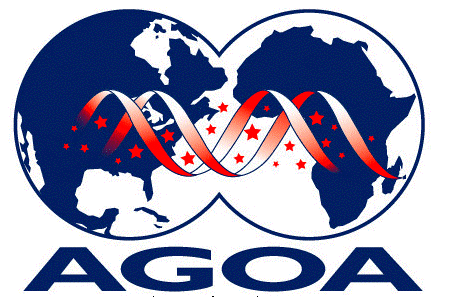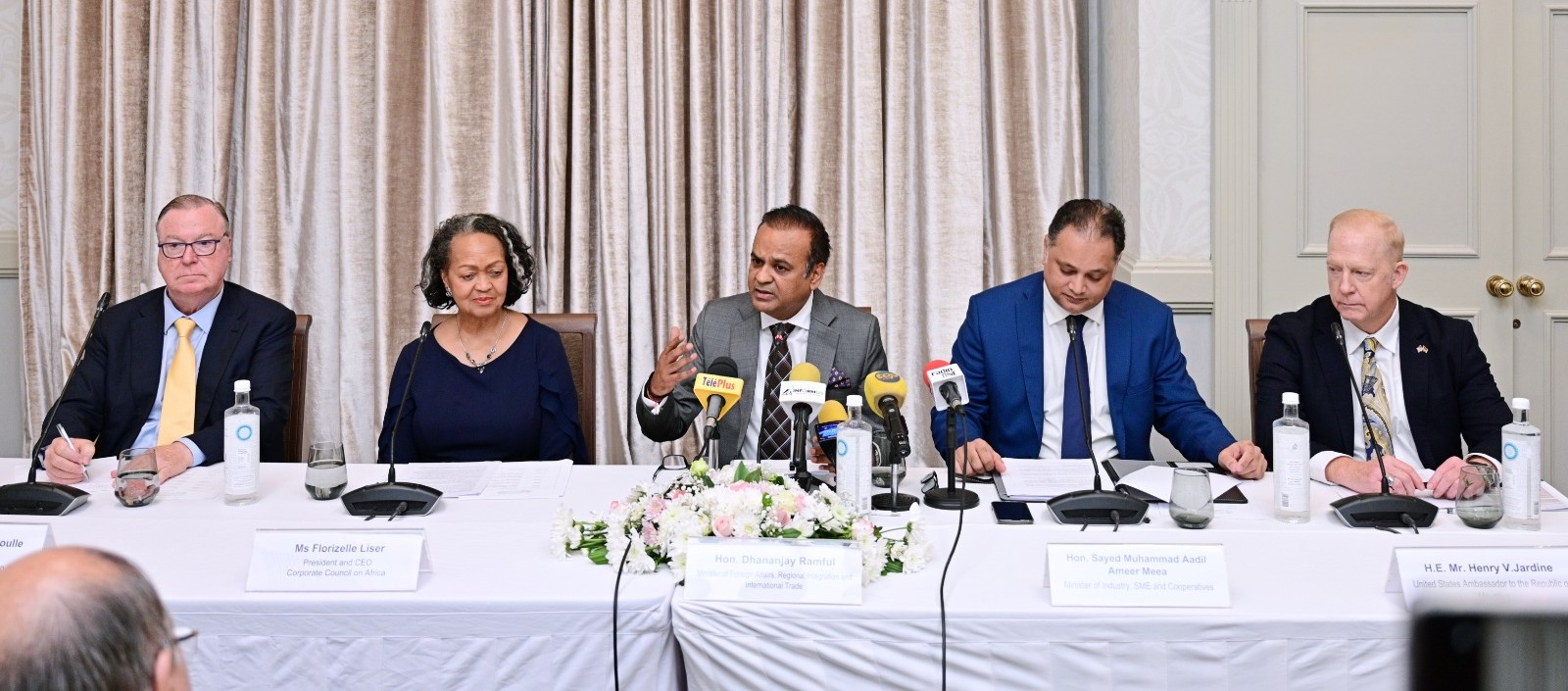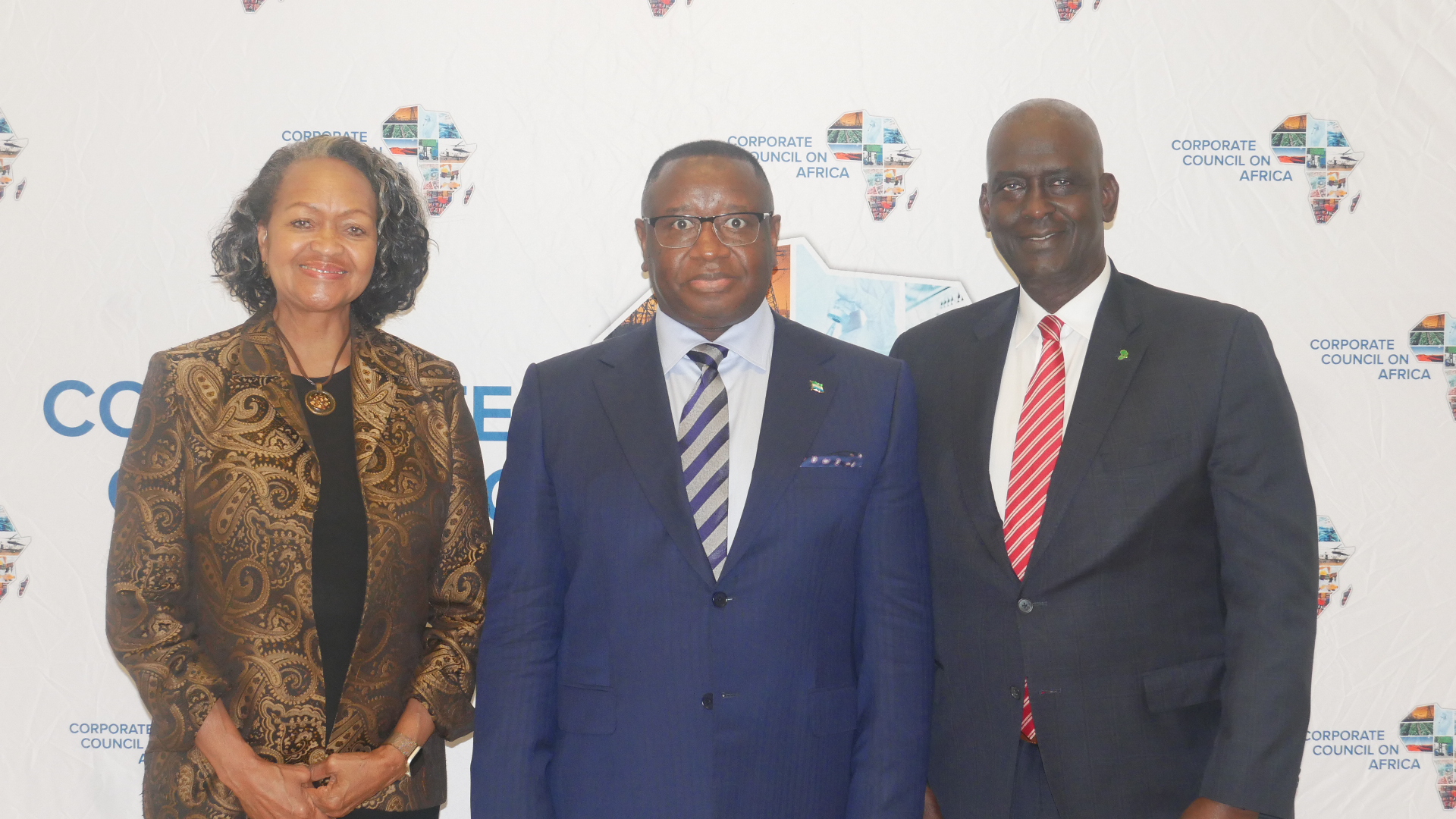A Dialogue with Assistant U.S. Trade Representative (USTR) for Africa Constance Hamilton on U.S.-Africa Trade
On Thursday, May 7, 2020, Corporate Council on Africa hosted a fireside chat with Constance Hamilton, Assistant U.S. Trade Representative for Africa, on the African Growth and Opportunity Act (AGOA), the proposed U.S.-Kenya Free Trade Agreement (FTA), and other USG trade priorities in Africa. Witney Schneidman, Senior International Advisor for Africa, Covington & Burling LLP moderated the discussionIn her opening remarks, Ms. Hamilton highlighted the importance of continuing the dialogue on trade policy and U.S. FTA initiatives in Africa despite the postponement of the AGOA Forum until 2021. Ms. Hamilton used recent impacts of the pandemic on value chains in Africa to reiterate the importance of countries diversifying their economic sectors under AGOA. She also updated listeners that, due to social distancing, USTR has extended the comments period for the AGOA review process to December and the U.S. and Kenya still intend to start FTA negotiations later this summer through a virtual platform.Ms. Hamilton affirmed that Kenya will be the first U.S. FTA partner in sub-Sharan Africa. USTR's vision is to have a comprehensive, high-standard agreement with Kenya that, moving forward, can serve as a bilateral model for African countries and serve as an enduring foundation for US-Africa trade. So far, the Agreement is comprised of goods and services protocols and will soon have provisions on IPR, investment, competition, and digital trade. Furthermore, USTR is looking at how SMEs can take advantage of the trading opportunities under an FTA, and USTR is working with the U.S. Small Business Administration (SBA) on advising the Kenyans on the creation of their own SBA. According to Ms. Hamilton, the FTA provides a level of certainty that African governments look forward to in their dealings with the U.S., and it will generate the investor interest needed to grow U.S.-Africa value chains.She noted USTR support of the African Union on their AfCFTA initiative, given that under the AfCFTA, future U.S. trade agreements can be crafted to complement and contribute to Africa’s regional integration objectives. She recognized the potential significance that the U.S.-Kenya FTA can have in supporting regional integration by pulling in inputs from neighboring countries and the East African Community, to produce their goods for the U.S. market, therefore creating new value chains incorporating African countries.Looking forward, Ms. Hamilton acknowledged other EAC countries as well as Nigeria as potential key markets for negotiating U.S. FTA’s in the future. She believes that the FTA with Kenya will drive U.S. investment interest to Kenya, and Africa in general. She also acknowledged how Prosper Africa has supported FTA negotiations by funding USTR’s efforts in building trade capacity systems in Kenya.In her closing remarks, Florie Liser, President and CEO of CCA, assured listeners that though COVID-19 is impacting trade patterns, the U.S.-Africa trade relationship is continuing to move forward.



